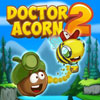Rethinking Lifestyle
Bees and Other Pollinating Insects
It is said that humans are the most intelligent animals on the planet; after all no other animal has even invented the wheel, let alone gone to the moon. However we humans are also the most stupid animals on the planet.
No doubt you will have heard that 80% of our food relies on insects for pollination and a quick walk through the supermarket produce section will confirm this. Anything with seeds inside including almost all kinds of fruit as well as things like squash, cucumbers and tomatoes all require insects. You may think that things like onions, broccoli and carrots don’t need pollinating, but the seeds to grow most vegetables certainly do need pollination. Go down any aisle at the supermarket and you will see things like jams, tomato sauce in numerous forms, pickles, dried fruits, canned goods etc, all of which require insects. There are a few items that don’t require insects, like potatoes, wheat or corn, beets and of course artificial colours, flavourings and preservatives, though a diet of potatoes, cornflakes and pickled beets would be pretty boring.
We humans have become experts at killing insects. When a farmer sprays a field for aphids, for example, he kills every insect out there including millions of beneficial insects such as bees, as well. Then birds come in and gorge on the dead insects and are poisoned as a result. When a city fogs for mosquitoes they kill all insects, like butterflies, moths, bumble bees flies and thousands more. When did you last see a Monarch butterfly?
One of the worst insecticides is the neonicotinoid type, commonly known as a neonic. The seed of 99.9% of all corn grown for grain (not sweet corn), all soy beans, all sunflower seed and all canola seed is coated with this neonicotinoid insecticide. It gets into the plant and when an insect nibbles any part of the plant, the insect dies. To show how powerful it is, there is enough insecticide on one single grain of corn to kill 80,000 bees. And hundreds of tons of seed is used every year. In Europe the politicians have recently totally banned the use of this type of insecticide. Good for them, but why are our Canadian politicians so lethargic?
As the saying goes, we are shooting ourselves in the foot. In general, farmers don’t care as they want to maximize their profits. And as long as there is food on the supermarket shelves most ordinary people don’t care either. There are already millions of people around the world suffering from food shortages – and even starvation – yet here in Canada we are adding to the problem by killing the beneficial pollinating insects. It is crazy.
Where have all the birds gone? When did you last see lots of swallows for example? There are numerous species of insect eating birds in North America that not only eat insects themselves but they feed insects and caterpillars to their young. Bird numbers have dropped by 70% in the last few years in line with the increase in insecticides. Twenty-five years ago there were huge numbers of small birds migrating though southern Manitoba in spring on the way to their breeding grounds, but lately there are relatively few.
So what can you do? You can help by planting a bee friendly garden. Leave some weeds, especially dandelions that are the first flowers to appear in spring and on which insects can recover after a long winter in hibernation. Double varieties of flowers, although more pretty, are useless to pollinating insects. Please help the insects.




